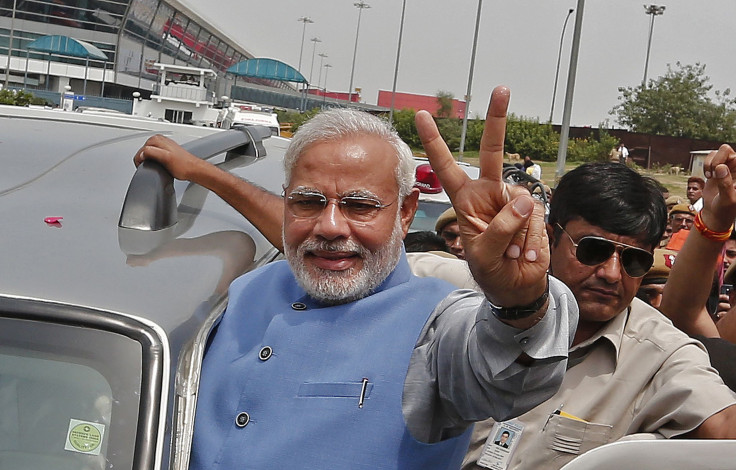Narendra Modi's Government To Focus On Sectoral Reforms, Growth, Investor Sentiment And Better Governance: UBS

India’s prime minister-designate Narendra Modi, who is expected to form his cabinet of ministers over the next two weeks, will focus on the standard bugbears of the Indian economy in the immediate future while working in the long term to reform sectors that are especially troubled, according to a new report from Swiss bank UBS (NYSE:UBS).
Consumer price inflation in India, which was recorded at 8.59 percent for April, a three-month high driven by rising food prices, will be a major and immediate priority for the Modi-led government, which is also expected to cut back spending on social programs such as the National Rural Employment Guarantee Act, which are deemed to have been expensive and unsuccessful.
“Improved governance is a big promise of the new Govt. Mr Modi has a reputation of being a good administrator and his strong governance is known to be a significant factor behind the Gujarat ‘success story.’ One of the ways of achieving this is by improving the ease of doing business, where India currently lags,” the UBS report said, adding: “Empowering the bureaucracy to work effectively, after the setback due to recent corruption scams, will be important too.”
In its first 100 days in power, the new government, which will take over when Modi takes the oath on May 26, is expected to introduce hikes in the prices of diesel, gas and urea, whose prices have been kept low by expensive subsidies. A fresh union budget is likely by July, as well as a timeline on reforming the insurance sector and the sales tax code.
In the long-term, according to UBS, Modi's government will focus on key sectors such as agriculture, housing, rail transport and tourism. The Modi-led government is also expected to focus on improving the of the country's massive labor force, which is frequently cited as a double-edged sword for India's economic future. Modi is also expected to launch reforms in the coal-power sector, which produced the energy-starved nation's biggest political scam, costing about $32 billion in lost revenues to the government.
“Under Mr Modi, in Gujarat, loss-making PSUs (public sector undertakings) turned profitable, attributed to bureaucrats running them with little political interference,” the report said: “Appointment of regulators for key sectors and ensuring their independence, apart from policy stability/clarity will also likely be a focus area.
“Expectations around Mr Modi’s reforms/development agenda imply India’s growth story hope will remain strong, at least in the next few months. We believe investors will be willing to give a premium for growth hope and also look beyond FY15 earnings estimates,” the report said.
On Thursday, the benchmark BSE Sensex stock index was up nearly 200 points, or 0.8 percent, in mid-morning trade while the rupee was trading at 58.5750 to the dollar.
© Copyright IBTimes 2024. All rights reserved.






















